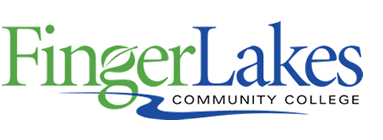Course Descriptions
Chemical Dependency (CDC) Courses
CDC 102 Concepts of Chemical Dependency (3-0) 3 credits
This course will study the nature of chemicals of abuse and their impact on the individual and society. This will include the major classes of drugs, their impact on the brain and body, why people use and how they become addicted.
Topics covered in this class, in addition to those mentioned, will include laws regarding chemical use, toxicology, drug screening and its implication, limitations and reporting. One of the four hours of tobacco education required by OASAS is included in the course material.
View Course Syllabus 
CDC 103 Issues in Chemical Dependency (3-0) 3 credits
This course addresses concepts and issues that move beyond the chemicals themselves. This includes the impact of chemical use on families and workplaces, use by adolescents and the impact of gender, race and culture both on the use of chemicals and on treatment. Topics will include assessment tools, an introduction to the biopsychosocial evaluation and the diagnostic process including determination of level of care and the place of 12 step and other mutual aid support groups. Students will learn about brief assessment tools and how to use them. They will also learn about health and wellness regarding medical issues common to persons who abuse substances, such as HIV, AIDS, Hepatitis, STI’s (Sexually Transmitted Infections) and TB (Tuberculosis). The course will include the remaining three hours of education on tobacco to complete this OASAS requirement.
View Course Syllabus 
CDC 115 Issues in Ethics for Chemical Dependency Counselors (3-0) 3 credits
This course addresses ethics for chemical dependency counselors by presenting an overview of ethical thought and the basics of ethical decision making. The major focus will be professional ethics as they relate to chemical dependency counseling, and on the CASAC canon of ethics. The course will include the examination of the student's personal values and belief system as it relates to becoming an ethical and competent chemical dependency counselor. The course will also provide the OASAS requirement of two hours of Mandated Reporter training. Also addressed will be confidentiality and the HIPAA regulations. This course will include the examination of one’s personal values and belief system as it relates to becoming an ethical and competent chemical dependency counselor. This course fulfills the OASAS requirement for 45 hours of education in ethics.
View Course Syllabus 
CDC 200 Addiction Counseling (3-0) 3 credits
This course focuses on the knowledge and skills needed to begin a career in Chemical Dependency Counseling. Students will learn the practical skills of completing a full biopsychosocial evaluation, including making a diagnosis using the DSM, and writing an evaluation summary. Topics will also include interviewing skills, treatment planning, referrals, communication, listening and feedback skills, how groups work, the impact of culture on treatment and how to assess spiritual issues. Students will be introduced to counseling theories and their relationship to treating addictions.
A minimum of ten hours of role play are used in this course for learning interviewing and group skills.
Prerequisites: CDC 103.
View Course Syllabus 
CDC 210 Field Experience Practicum I (3-0-1) 4 Credits
One hundred and fifty hours of field experience will be spent in a rehabilitation or treatment facility for alcoholics or addicts. The student will enter the facility under terms laid down by said facility. The facility will provide direct supervision and the FLCC field coordinator indirect supervision for the student. In addition to discussing internship experiences, classroom topics will include evidence-based programs and counseling techniques, treatment planning, group skills, case presentation, and further experiential practice with evaluation and group skills.
Prerequisite: CDC 103.
Co-requisite: CDC 200.
View Course Syllabus 
CDC 211 Field Experience Practicum II (3-0-1) 4 credits
Students are required to take two Chemical Dependency Counseling Practicum courses, with developmentally appropriate scaffolded outcomes. In this format students in their second experience will be able to serve as role models for students in their first experience. CDC 211 will serve as the Capstone course for the CDC degree. One
hundred and fifty hours of field experience will be spent in a rehabilitation or treatment facility for alcoholics or addicts. The student will enter the facility under terms laid down by said facility. The facility will provide direct supervision and the FLCC field coordinator indirect supervision for the student. In addition to discussing internship experiences,
classroom topics will include evidence-based programs and counseling techniques, treatment planning, group skills, case presentation, and further experiential practice with evaluation and group skills.
Prerequisite: CDC 210.
View Course Syllabus 
